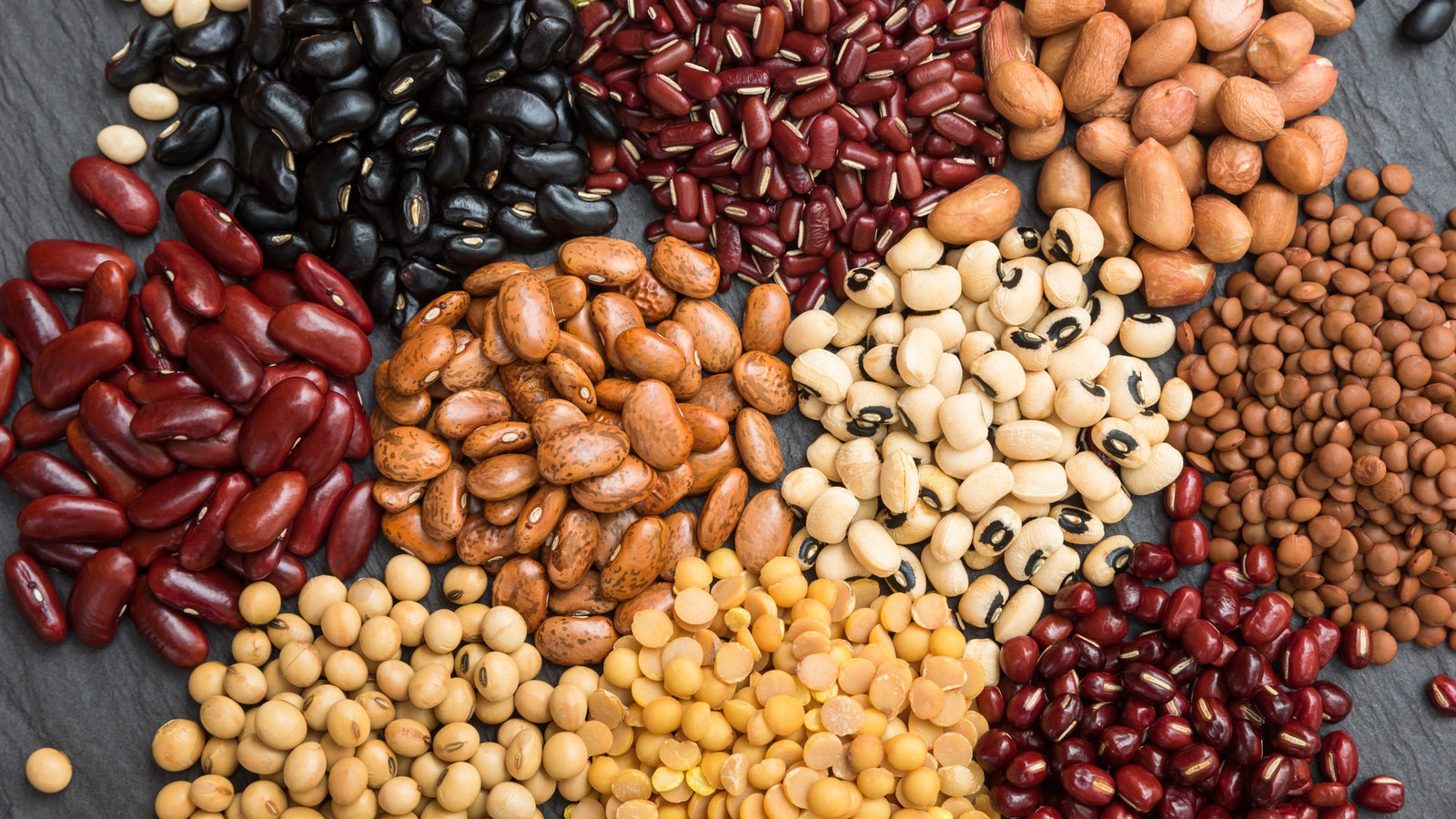
January 17, 2024 3 min read
When it comes to legumes, small red beans and kidney beans often find their way into our kitchens, adding a burst of color and nutrition to our meals. While they share similarities, subtle differences exist in their taste, texture, and nutritional content. In this comprehensive exploration, we'll delve into the nutritional showdown between small red beans and kidney beans, helping you make informed choices for your healthy, organic lifestyle.
Small Red Beans: The Nutrient-Rich Dynamo
Small red beans are a notable source of plant-based protein, essential for muscle repair and overall body function. A single cup can provide a substantial portion of your daily protein needs, making them an excellent choice for vegetarians and vegans.
Rich in dietary fiber, small red beans support digestive health and promote a feeling of fullness. This fiber content aids in regulating blood sugar levels and managing weight, contributing to a balanced and nutritious diet.
Packed with antioxidants, small red beans offer protection against oxidative stress and inflammation. These compounds contribute to overall health, potentially reducing the risk of chronic diseases.

Kidney Beans: The Versatile Nutritional Powerhouse
Kidney beans boast a commendable protein content, offering a substantial protein source for both vegetarians and meat-eaters alike. Protein is crucial for the body's repair and maintenance processes.
Like their small red counterparts, kidney beans are a fiber-rich food. The soluble fiber they contain helps maintain healthy cholesterol levels, supporting heart health and preventing digestive issues.
Kidney beans bring a variety of essential nutrients to the table, including iron, potassium, and folate. These nutrients play pivotal roles in oxygen transport, blood pressure regulation, and cell division.
Comparative Analysis: Small Red Beans vs Kidney Beans
Both small red beans and kidney beans offer substantial protein, making them excellent choices for those seeking plant-based protein alternatives.
While both varieties are fiber-rich, small red beans may have a slightly higher fiber content. However, the difference is minimal, and both contribute significantly to digestive system.
Small red beans, with their deep color, tend to have a higher concentration of antioxidants compared to kidney beans. These antioxidants contribute to overall health and disease prevention.
Incorporating Small Red Beans and Kidney Beans into Your Diet
Both small red and kidney beans are excellent additions to hearty soups and stews, providing a nutritional boost and enhancing flavor.
Toss them into salads or prepare them as a side dish to accompany your main course, adding both texture and nutritional value to your meals.
Get creative in the kitchen by incorporating these beans into homemade veggie burgers or patties, elevating the nutritional content of your favorite comfort foods.
Conclusion: The Verdict on Small Red Beans vs Kidney Beans
In the small red beans vs kidney beans nutritional showdown, both emerge as winners, offering an array of health benefits. Your choice may depend on personal taste preferences, culinary applications, or specific nutrient needs. By incorporating both into your diet, you can enjoy a diverse range of flavors and textures while reaping the nutritional rewards each variety has to offer.
Whether you're whipping up a chili, crafting a salad, or experimenting with bean-based dishes, the small red beans vs kidney beans debate is less about which is superior and more about embracing the incredible health benefits that both bring to your table. Make room for these nutrient-packed legumes in your organic, healthy lifestyle, and relish the delicious journey to well-being.
❤ Try our USDA certified organic Organic Small Red Beans and Organic Dark Red Kidney Beans❤
Related Blogs:
Comments will be approved before showing up.

January 27, 2025 3 min read
Flaxseed, the tiny yet powerful superfood, is packed with nutrients that can support weight loss. From curbing hunger to stabilizing blood sugar, this guide dives into the science of how flaxseed can help you shed those extra pounds.

December 11, 2024 3 min read
Discover three quick and easy soup recipes featuring organic small red beans. From a classic vegetable soup to a creamy potato blend, these wholesome recipes are perfect for chilly days and busy weeknights. Packed with flavor and nutrition, these soups will warm your heart and soul this winter!

December 06, 2024 3 min read
This vibrant and nutritious Green Lentil Salad combines tender lentils with grilled chicken, fresh vegetables, and a zesty lemon dressing. Packed with protein, fiber, and essential vitamins, it’s the perfect healthy meal for any time of day.
© 2026 Be Still Farms- Real, Fine Organics.
Privacy | Terms | Refund Policy | Organic Certification
